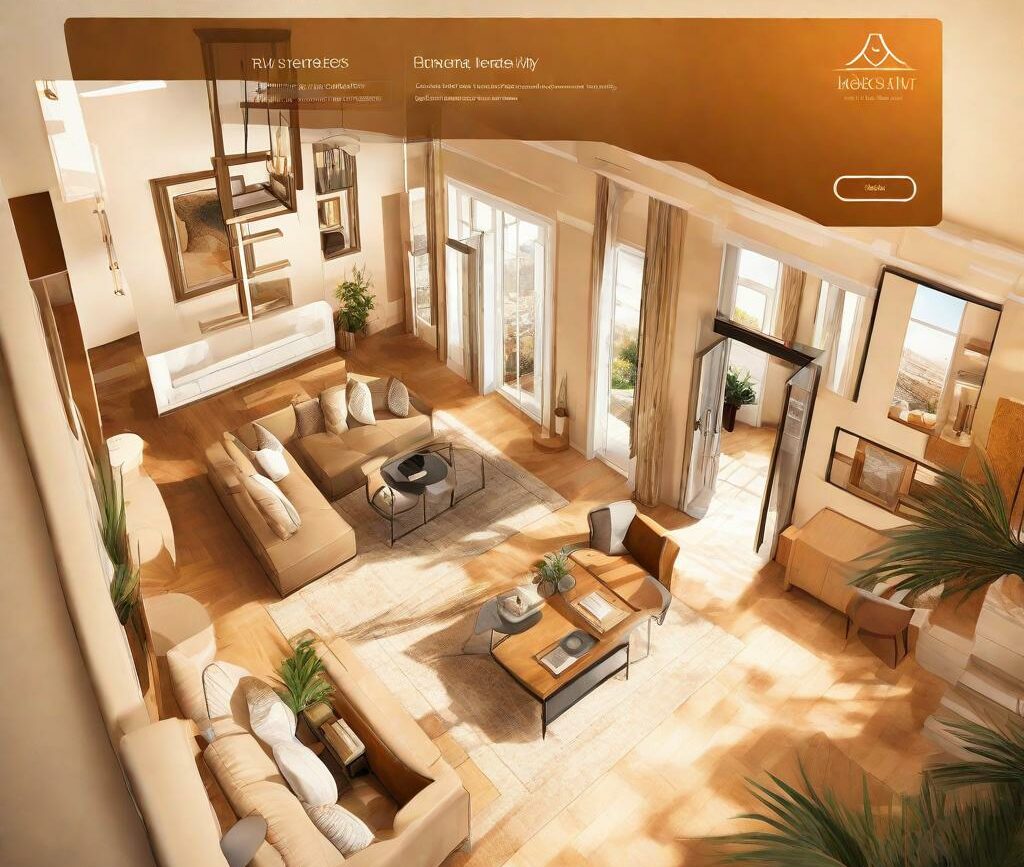
In today’s digital age, website traffic plays a vital role in the success of estate agencies. With the increasing competition in the real estate market, it is crucial to find innovative solutions to attract more visitors to your agency’s website. One such game-changer is the use of virtual tours. By incorporating virtual tours into your website, you can captivate your audience, enhance user experience, expand your reach, and ultimately drive more traffic to your estate agency website.
Exploring the Benefits of Virtual Tours
A. Captivating your audience with immersive experiences
Virtual tours provide a realistic view of properties, enabling potential buyers to experience the space as if they were physically present. By utilizing high-quality images, 360-degree views, and interactive elements, virtual tours evoke emotional connections through visual storytelling. This immersive experience not only engages users but also entices them to spend more time exploring your website.
B. Enhancing user experience and satisfaction
Virtual tours offer convenience and accessibility to potential buyers. Unlike traditional property visits, virtual tours can be accessed from anywhere at any time, allowing users to explore properties at their own convenience. This empowers potential buyers to make informed decisions and saves them the hassle of multiple physical visits. By providing transparent and comprehensive property showcases, virtual tours build trust and credibility with your audience, leading to increased user satisfaction.
C. Expanding your reach to a wider audience
In today’s tech-savvy world, many individuals prefer virtual experiences. By incorporating virtual tours into your website, you can cater to this audience and provide them with the immersive experiences they desire. Additionally, virtual tours attract international buyers and remote investors who may not have the opportunity to physically visit properties. Moreover, virtual tours can be shared across social media platforms, creating viral marketing opportunities and expanding your reach even further.
Implementing Virtual Tours on Your Website
A. Choosing the right virtual tour software or service
When implementing virtual tours on your website, it is crucial to choose the right virtual tour software or service. Evaluate key features and functionalities such as image quality, interactive elements, and compatibility with different devices. Consider the ease of integration with your existing website and assess pricing options that fit your agency’s budget.
B. Creating captivating virtual tours
To ensure the success of your virtual tours, it is important to create captivating and engaging content. Showcase the most appealing aspects of each property, highlighting key selling points and unique features. Incorporate interactive elements such as hotspots, floor plans, and annotations to keep users engaged throughout the tour. Optimize loading speed and responsiveness to provide a seamless and enjoyable experience for your audience.
C. Integrating virtual tours with your overall marketing strategy
Virtual tours should not exist in isolation but should be integrated into your overall marketing strategy. Incorporate virtual tours in property listings, allowing potential buyers to easily access the tours when browsing through properties. Promote virtual tours through email campaigns and newsletters, ensuring that they reach your target audience. Monitor analytics and feedback to continuously improve the quality and effectiveness of your virtual tours.
Increasing Visibility and Driving Traffic
A. Optimizing your website for search engines
To drive more traffic to your estate agency website, it is essential to optimize your website for search engines. Conduct keyword research to identify virtual tour-related terms that potential buyers may be searching for. Implement on-page SEO techniques such as optimizing meta tags, headings, and image alt text to improve visibility in search engine rankings. Generate backlinks through virtual tour partnerships and collaborations, further enhancing your website’s authority and visibility.
B. Leveraging social media platforms for targeted promotion
Social media platforms provide an excellent opportunity to promote your virtual tours and attract potential buyers. Create shareable content related to your virtual tours, such as teaser videos or behind-the-scenes footage, to amplify your reach. Engage with potential clients through comments and direct messages, building relationships and increasing brand awareness. Collaborate with influencers and industry experts to reach a wider audience and gain credibility in the real estate market.
C. Utilizing paid advertising for increased visibility
Paid advertising can significantly increase the visibility of your virtual tours and drive targeted traffic to your estate agency website. Run targeted ads on platforms like Google AdWords and Facebook Ads, ensuring that your ads reach potential buyers who are actively searching for properties. Retarget website visitors who have interacted with your virtual tours, reminding them of the properties they viewed and enticing them to take further action. Continuously monitor and adjust your ad campaigns based on performance data to maximize their effectiveness.
Summary and Frequently Asked Questions (FAQs)
A. Summary of key points discussed in the article
In summary, virtual tours have the power to enhance traffic for your estate agency website. By captivating your audience with immersive experiences, enhancing user experience and satisfaction, and expanding your reach to a wider audience, virtual tours can drive more traffic and potential buyers to your website. By implementing virtual tours effectively on your website, optimizing for search engines, leveraging social media platforms, and utilizing paid advertising, you can further increase visibility and attract targeted traffic.
FAQs:
How do virtual tours impact user engagement and conversion rates?
Virtual tours significantly impact user engagement and conversion rates. By providing a realistic and immersive experience, virtual tours capture the attention of potential buyers and keep them engaged for longer periods. Studies have shown that properties with virtual tours have higher conversion rates compared to those without. The ability to visualize the space and explore it at their own pace empowers potential buyers to make informed decisions and increases their confidence in the property.
Are virtual tours suitable for all types of properties?
Virtual tours are suitable for a wide range of properties, including residential homes, commercial spaces, and even vacant land. Whether it’s showcasing the interior of a luxury penthouse or highlighting the features of a retail space, virtual tours offer an engaging and informative experience for potential buyers. However, it is important to consider the specific needs and preferences of your target audience when deciding whether to incorporate virtual tours into your marketing strategy.
Can virtual tours replace physical property visits entirely?
While virtual tours offer a realistic and immersive experience, they cannot replace physical property visits entirely. Some potential buyers may still prefer to physically view a property before making a final decision. Virtual tours serve as a valuable tool for initial property exploration, allowing potential buyers to narrow down their options and prioritize the properties they are most interested in. Virtual tours can save time and resources for both buyers and estate agencies, making the property viewing process more efficient.





